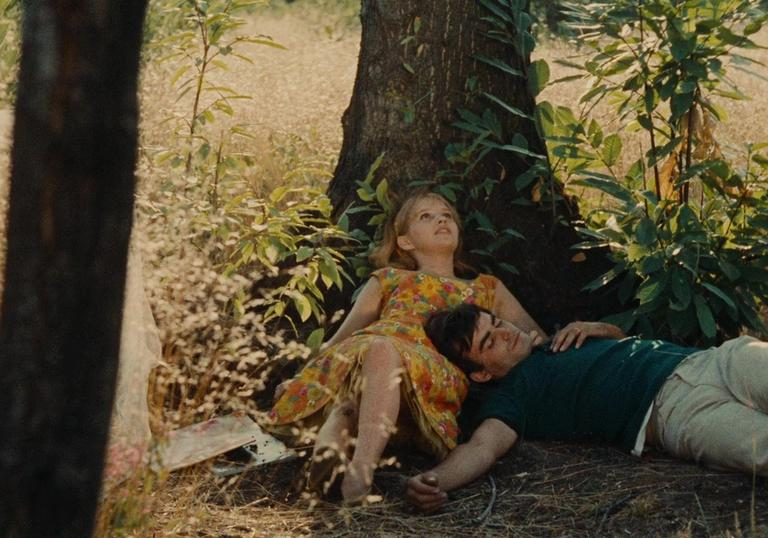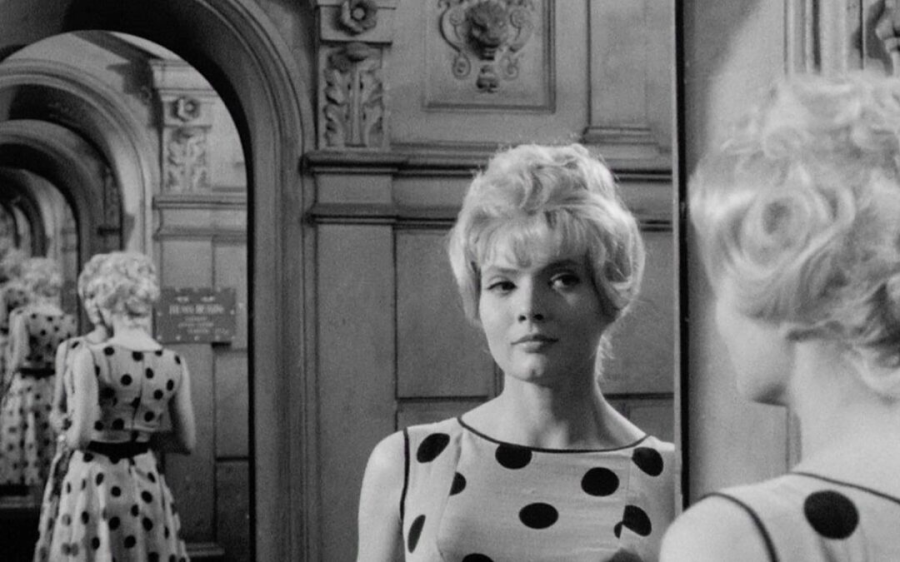Two of her most famous films, a silent short inside of one of those films, a historical snapshot of a country in the midst of revolution, and a lost film mark the entries into the second entry on Agnès Varda.
The Fiancés of the Bridge Mac Donald

The 1920’s era short slapstick film that can be found in the middle of Cléo from 5 to 7. The film stars acclaimed director and actress Jean-Luc Godard and Anna Karina. The short is a fun bit of levity that cuts the drama in Cléo. The film is slight in comparison to Varda’s greater oeuvre but is a fun novelty.
Cléo from 5 to 7

Quite possibly Varda’s masterpiece Cléo highlights 90 minutes in a woman’s life as she awaits news about a medical test. The film focuses on the insecurities of Cléo as the men around her belittle her troubles and focus instead on her beauty. Her partner even exclaims “your beauty is your health”. When Cléo is alone, or at least without men, the film focuses on the frivolities of femininity, but it never judges it. Hat shopping is just as important as her music lessons because they both bring her joy. When shefinally meets a man who respects her strife she finds a man who sees her as an equal, and through that finds comfort even when the test result is less than ideal.
Salut Les Cubains

Agnès Varda’s view into dost revolution Cuba reflects her and the French New Wave’s radical left politics. When taken as a snap shot of 1963, before Fidel proved to be nothing but a dictator, Varda captures the enthusiasm and joy of the Cubans at the time. She does this through the Afro-Cuban music of the time and by making her still shots dance on the screen to the beat of the ethnic music.
The Children of Museum
Unavailable online or on physical media
Le Bonheur

An uncritical viewing of Le Bonheur would assume it is nothing but a bit of twee filmmaking from it’s pastel colors and swelling score. However, upon closer inspection it becomes clear that in Le Bonheur, Varda created her version of a horror film. The film delves deep into the replaceability of women in the eyes of men. If they look pretty, take care of the kids, and provide sex to the man, the man doesn’t care which one he has. The speed at which François replaces the even uncredited Thérèse with Émilie is terrifying.
In her features especially in this time period, Varda was interested in looking at how men saw women in the early 60s. In Cléo from 5 to 7 the men in Cléo’s life infantilize her and diminish her health concerns by stating that a woman’s beauty is her health. Even more insidiously, Le Bonheur investigates the relative replaceability of women in men’s eyes as they are less equals to men as they are servants. Even the short film The Fiancés of the Bridge Mac Donald plays on this replaceability motif. The only film that doesn’t fit these motifs is the documentary short Salut Les Cubains where Varda’s far left politics are more on her sleeve than the cagey way she presents them in the features.
